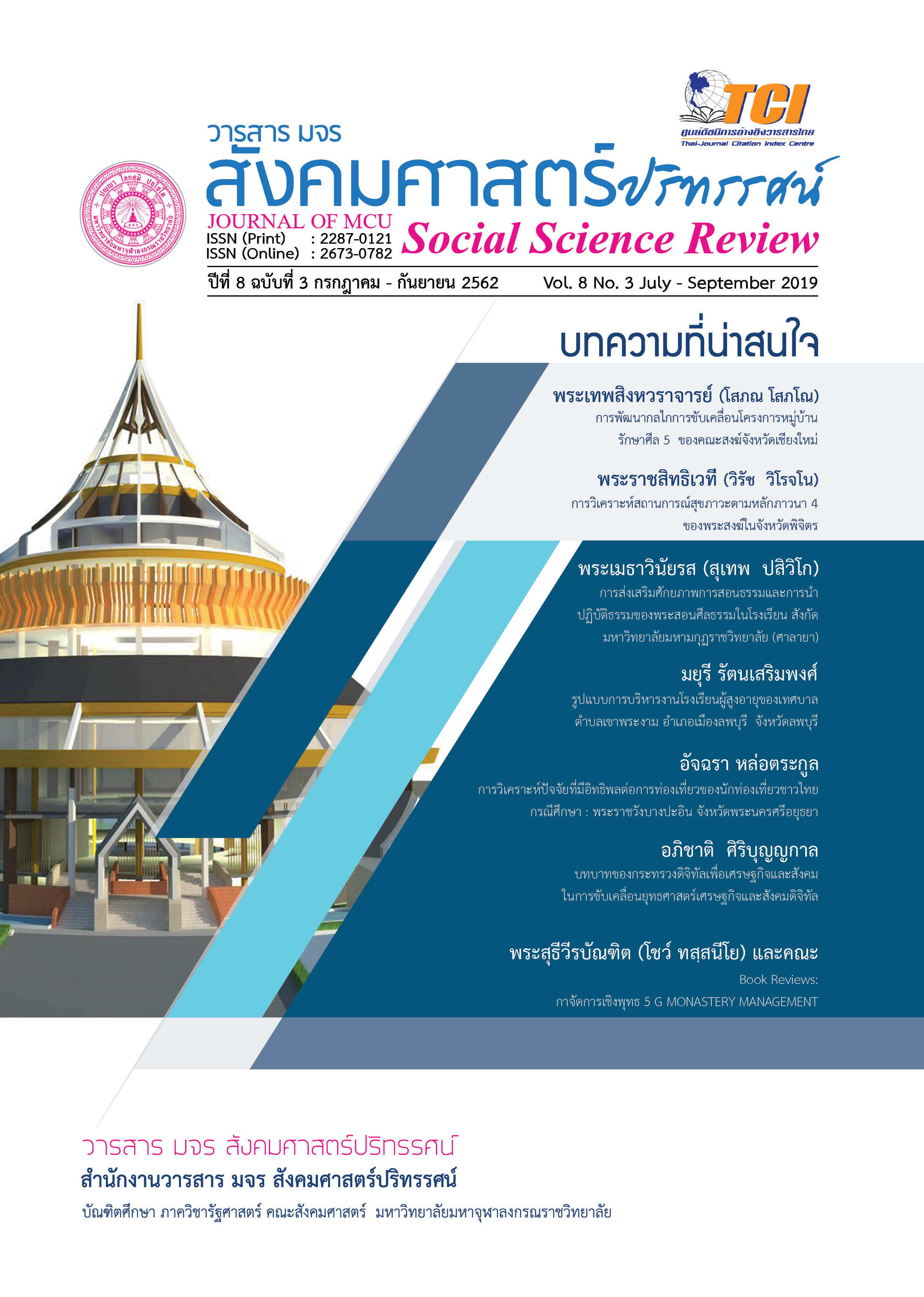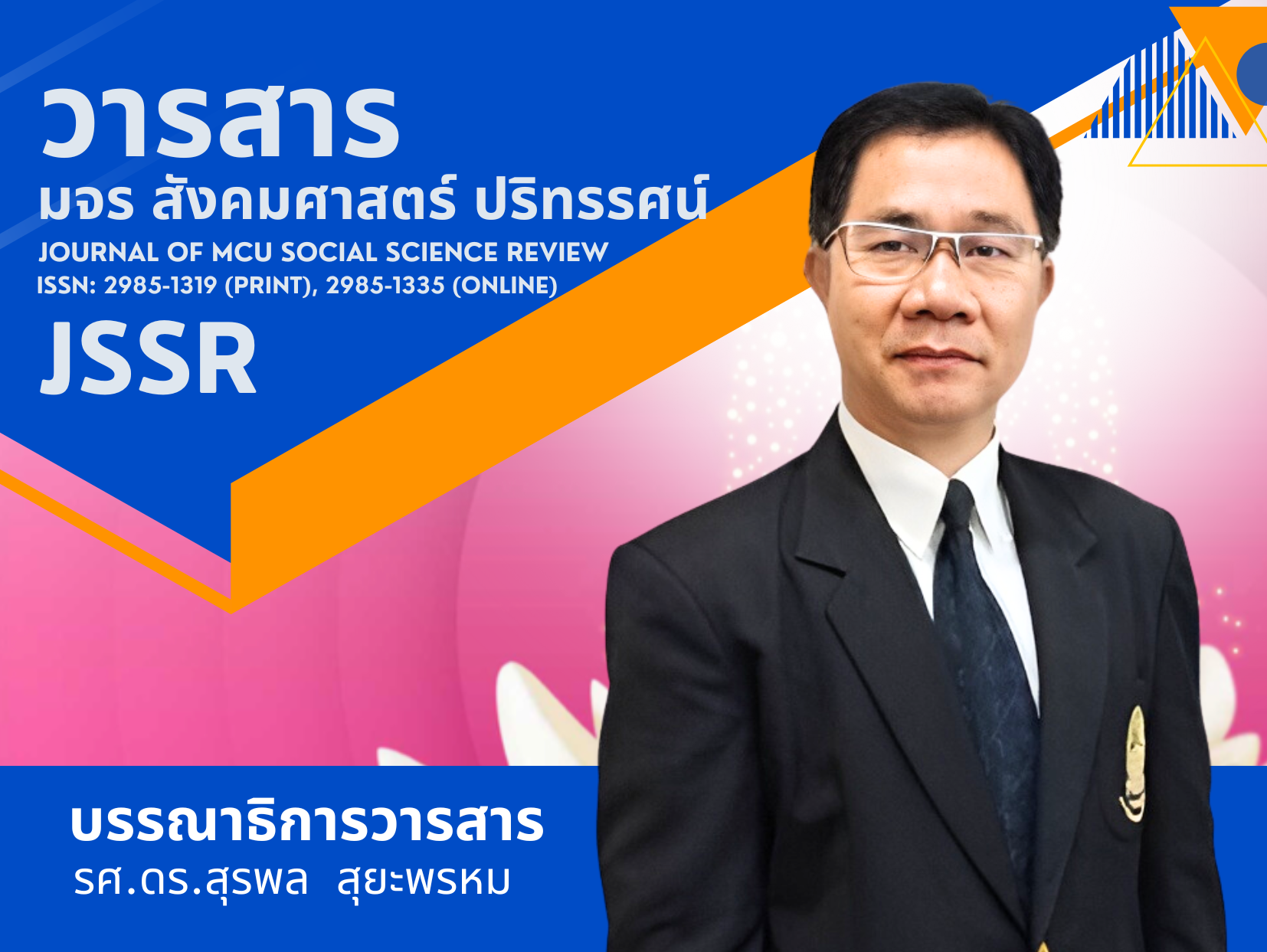The Development of Vocational Management Model According to Sufficient Economy Philosophy in College under The Office of the Vocational Education Commission
Keywords:
Model Development, Philosophy of Sufficiency EconomyAbstract
ABSTRACT
The purposes of thisstudy were 1) to study management components of vocational education in accordance with philosophy of sufficiency economy for schools under the office of Vocational Education Commission, and 2) to develop the management model of vocational education in accordance with the philosophy of sufficiency economy for schools under the office of Vocational Education Commission. Delphi technique was used to interview 21 experts who were selected by using snowball sampling and 94 items of a 5-rating scale questionnaire which the reliability was 0.98. The samples consisted of administrators and teachers in schools providingas the learning centers of the philosophy of sufficiency economy or schools as the master schools of the philosophy of sufficiency economy. Taro Yamane formula was used to calculate the sample size of 395 informants. Data were analyzed by using median, interquartile range, mean, and standard deviation.
The research results were found as follows:
- As regards the management components of vocational education in accordance with philosophy of sufficiency economy for schools under the office of Vocational Education Commission, there were 4 components as follows: 1) Creating knowledge and understanding, 2) Applying an implementation, 3) Cooperating, and 4) Monitoring and evaluating.
- As regards the evaluation results of the management model of vocational education in accordance with the philosophy of sufficiency economy for schools under the office of Vocational Education Commission, it was found that the significant was at the highest level. When considering by each aspect, it was found that in terms of
The research found that
applying theimplementation was at the first highest level, followed by in terms of monitoring and evaluating, coordinating, and creating knowledge and understanding, respectively.
Keywords : Model Development, Philosophy of Sufficiency Economy
References
Ajarawan Chaiyakaln.(2012).Application of Sufficiency Economy Philosophy in Schools under the Office of Chiang Rai Provincial Primary Education Area 3:A case study of Ban San Rong School, Mae Chan District, Chiang Rai Province, May 12, 2013.
https://www.mfu.ac.th/school/liberalarts.../2555_17.pdf
Atiporn Thonglor. (2010).Management of sufficiency economy philosophy in schools
under the office Surin Educational Service Area.Surin: Boromarajonani College of Nursing Surin.
Bunjadnon thamarn and term. (2008).Management of education based on economic
philosophy Sufficiency of schools in Ngao District, Lampang Province.
Lampang : Self-studyMaster of Education Program in Educational Administration, Naresuan University.Calkins, Peter(2009).”Sufficiency Economy Matrices : Multi-Period Optimization for Local Development Planners. ”Jourmal of Economics and
Management ,5 (2).305-332.
Chaijairin Chaivisit.(1996).Participatory Action Research to Enhance Values Based on Sufficiency Economy Concepts for Students and Communities.Chiang Mai:
Master Thesis, Graduate School, Chiang Mai University.
Education, Ministry.(2009).Guidelines for Sufficiency Economy Supervision.Bangkok: Bureau of the Permanent Secretary.
National Economic and Social Development Board, Office(2001).National Economic and Social Development Board No. 11(2012–2016).Bangkok:The Prime Minister.
National Economic and Social Development Board, Office of the National Economic and Social Development Board, Office.(2016).Draft National Economic and Social Development Plan No.12(2017-2021).Bangkok :The Prime Minister.
RapeephanKanarit.(2011).School administration according to Sufficiency Economy
Philosophy Under the Office of PathumThani Primary Education Area 2.Master Thesis Master of Education Program in Educational Technology Managemen Rajamangala University of Technology Thanyaburi.
Sakornrat Kamutamas(2007).School Administrators’ Working Performance Through
the Sufficient Economy Theory : A Case Study. UbonRatchathani : Northeast Polytechnic College.
The Prime Minister.(2016).National Strategic Framework for 20 Years (2017-2036) (Summary).Bangkok:The Prime Minister.
Thitimal Thongpim.(2008).The use of the Sufficiency Economy Philosophy in the Learning Management of TeachersChiang Mai Agricultural and Technology College.Chiang Mai:Independent StudyGraduate School, Chiang Mai University.
Vocational Education Act.(2008).Government Gazette,125(43),1-24.
Vocational Education Commission, Office.(2009).The Office of the Vocational Education Commission . (2009).Bangkok:Management System Development Group.
Downloads
Published
How to Cite
Issue
Section
License
In order to conform the copyright law, all article authors must sign the consignment agreement to transfer the copyright to the Journal including the finally revised original articles. Besides, the article authors must declare that the articles will be printed in only the Journal of MCU Journal of Social Sciences. If there are pictures, tables or contents that were printed before, the article authors must receive permission from the authors in writing and show the evidence to the editor before the article is printed. If it does not conform to the set criteria, the editor will remove the article from the Journal without any exceptions.





